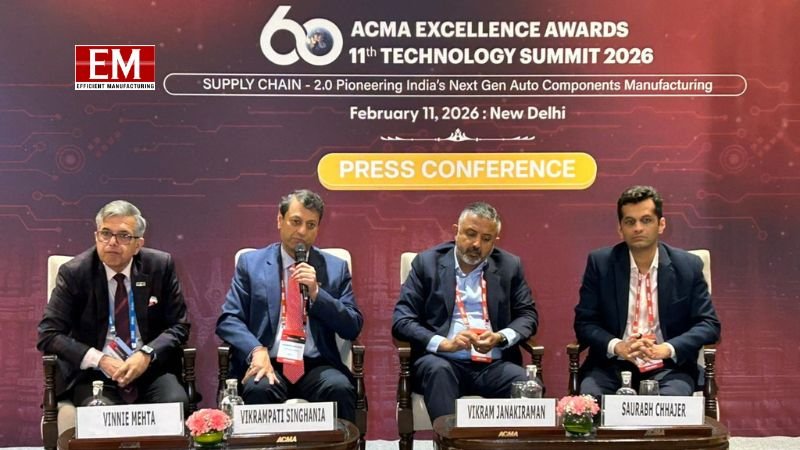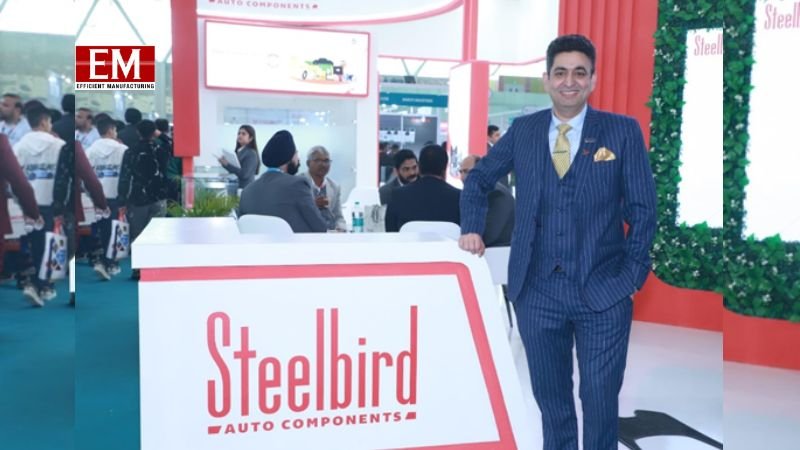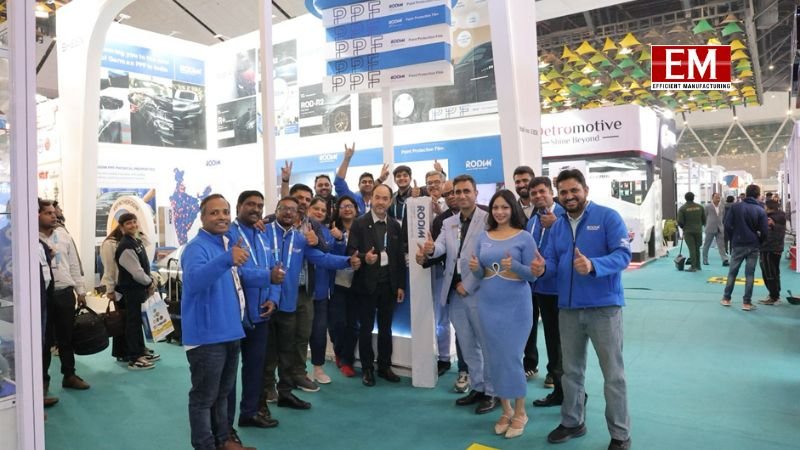In an exclusive conversation with Efficient Manufacturing magazine, S Sunil Kumar, Country President, Henkel Adhesive Technologies India, discusses how Henkel is aligning its innovation and sustainability strategies with India’s growing semiconductor ambitions. He sheds light on the company’s expanding local manufacturing capabilities, cutting-edge application centre in Chennai, and its role in supporting the nation’s vision for a self-reliant and eco-conscious semiconductor ecosystem.
Q. How are recent government policies like the India Semiconductor Mission (ISM), PLI incentives, and the “Make in India” initiative shaping the semiconductor manufacturing ecosystem?
India’s semiconductor ambitions are gaining significant momentum, propelled by robust government initiatives such as the India Semiconductor Mission, Production Linked Incentive (PLI) schemes, and the broader ‘Make in India’ campaign. A landmark milestone in this journey is India’s recent push to develop its first indigenous semiconductor chip, signalling a critical step toward technological self-reliance and global competitiveness.
These strategic programs are not only accelerating localisation but also attracting substantial global investment, positioning India as an emerging hub in the highly competitive semiconductor landscape. In September 2025, the Government of India announced an expanded Semicon India 2.0 roadmap, sanctioning four new projects and two dedicated compound semiconductor and OSAT (Outsourced Semiconductor Assembly and Testing) facilities. The government has also launched a “Chip-in-India” R&D Fund to catalyse local design-to-manufacturing synergies. Additionally, states such as Gujarat and Tamil Nadu have rolled out tailored semiconductor cluster policies with land, energy, and water incentives to fast-track investments.
Q. What critical challenges, such as import dependence, segment-specific materials innovation, or sustainability targets, must India’s nascent semiconductor industry address, and how is Henkel India contributing solutions through its manufacturing expansions and eco-conscious infrastructure?
Building on this positive trajectory, the ecosystem now has exciting opportunities to further strengthen itself. Priorities include reducing dependency on imports for critical materials, fostering segment-specific innovation in semiconductor materials, and advancing sustainability efforts to align with global environmental standards.
At Henkel India, we recognise these opportunities that will support us in driving meaningful impact. We have responded by expanding our local manufacturing capabilities and infrastructure, most notably through the recent launch of our state-of-the-art Consumer Electronics Application Centre in Chennai.The lab is equipped for rapid testing, material characterisation, and co-development with customers, helping shorten qualification cycles and speed up adoption of advanced packaging solutions.
Henkel’s portfolio in India now includes die-attach pastes and films, underfills, encapsulants, conductive adhesives, and wafer-level packaging materials. We are also focusing on large-die capillary underfills and high-thermal materials to address AI, HPC, and EV power module needs.
On the sustainability side, Henkel is optimising cold-chain logistics for temperature-sensitive semiconductor materials, adopting energy-efficient infrastructure, and exploring eco-friendly chemistries to support India’s green manufacturing vision.
Q. Looking ahead, how will India build sustainability, R&D excellence, and product development into its semiconductor roadmap, and in what ways is Henkel India positioning itself as a long-term innovation partner within this framework?
Looking ahead, India’s journey toward a future-ready and sustainable semiconductor ecosystem will be anchored on three key pillars: sustainability, R&D excellence, and product development. The Government of India has set a goal for 30% of semiconductor manufacturing to be powered by renewable energy by 2030 and has mandated that new fabrication plants adopt water-recycling systems and circular-economy practices. To strengthen the talent pipeline, India Semiconductor Mission has also introduced a Talent Acceleration Program aimed at bridging critical skill gaps in chip design, packaging, and fab operations.
Henkel is proud to position itself as a long-term innovation partner within this framework. We remain deeply committed to enabling scalable, responsible growth through continuous advancements in materials science and technical excellence. We are investing in collaborations with Indian universities to support semiconductor packaging talent development and are building local expertise in AI and EV-focused packaging solutions. Moreover, Henkel’s advanced packaging portfolio spanning 2.5D/3D integration, high-bandwidth memory underfills, and automotive-grade encapsulants positions us to co-innovate alongside India’s semiconductor players.
By combining global expertise with localised manufacturing and R&D, Henkel is ensuring that India’s semiconductor journey is not only globally competitive but also sustainable, resilient, and innovation-led.












